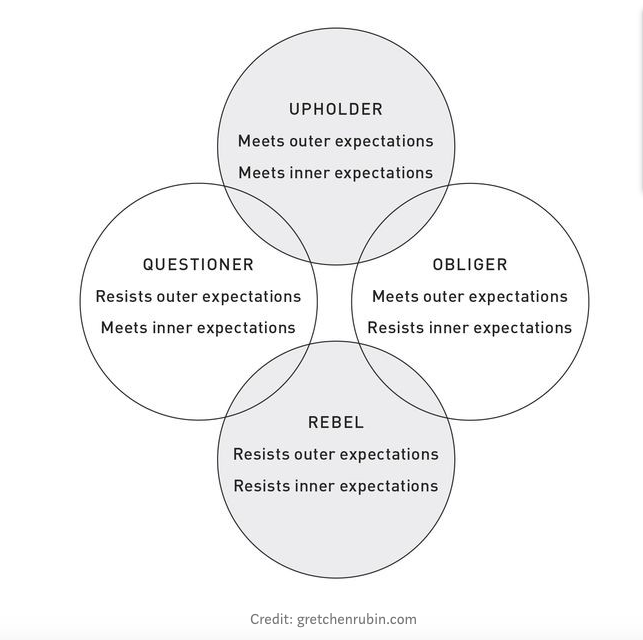By admin
Posted in Uncategorised
Dario Cotroneo’s BLOG for Hairbiz – March 2020
Owning staff can be a journey, hopefully mostly positive, however sometimes challenging. There are many different personalities and characters to tend to, and what works for one may not work for another.
I often wonder why some people get more things done or are able to work with focus and direction. I’ve learnt it may not have anything to do with their willpower, but how they are wired. We all have inner tendencies that we are not aware of that make us react to situations. It’s how we have wired our brain over time to react.
So how do we identify what motivates us or makes others “Tick”?
There are 4 main categories one can fall under. By understanding yours or another person’s “inner tendency” we can attain more productivity and achieve goals, for ourselves and with team members.
Here’s how you can evaluate inner tendencies according to author Gretchen Rubin.
THE OBLIGER
Obliger’s easily meet outer expectations. They deliver on time when someone else is counting on them, but they struggle with inner expectations, such as setting personal resolutions. They become discouraged when trying to adopt new habits because they’ve tried and failed in the past.
Obliger’s need outer accountability to meet inner expectations. They do well with deadlines and team supervision.
An “obliger” thrives on accountability so set daily or weekly goals, check in with yourself, or the team member and keep on target. Obligor’s like having a “buddy” to keep on track. For example, doing a cutting class with a friend who will be annoyed if you don’t show up.
THE QUESTIONER
Questioners question all expectations. They want to know why they should do something because they have a deep commitment to logic and efficiency.
Questioners have a hard time making decisions because they want more information. They need reasons and justifications to be motivated. If they are at work and feel something’s dumb, they won’t do it. Also, this tendency can seem disrespectful or not being a team player.
Make sure you are comfortable with the logics behind what is being asked of you and allow yourself to ask questions constructively. If this is a team member allow them the time to process the information and task asked of them.
THE REBEL
Rebels resist all expectations, outer and inner. They do what they want and when they want to do it, acting from a source of freedom, choice, and self-expression. When someone else tries to get a rebel to do something, they resist.
Identity is important to a rebel. For example, a rebel might resist going to a 8 a.m. staff meeting because they hate being told where to go and when to show up.
To effectively navigate a Rebel, set challenges above others in the team. They tend to enjoy meeting them. Examples are; give them an ambitious deadline or hold a friendly competition to outperform other members of the group. If you are the rebel set yourself goals outside of the scope required of you, as you love defying expectations and proving others wrong.
THE UPHOLDER
Upholders are good at meeting inner and outer expectations. They meet goals, thrive under rules and expectations, and keep resolutions without too much of a problem.
While this tendency sounds like productivity perfection, one of an upholder’s issues is that they can be seen as rigid, and have a hard time switching gears when circumstances change. They also struggle when they’re in a work environment that has an emphasis on flexibility.
In some salons, an owner might say, “Do what you need to, to make the client happy.” That’s great for a Rebel, but an Upholder wants to know what the right way is. If there is a rule, they don’t break it.”
Upholders thrive under routines and schedules. Be aware of those that may “freak out” when told to “go out of the lines”. You may need to guide them through it. As an Upholder make sure you voice when you feel uncomfortable and get the guidance you require.
Our “tendency” shapes every aspect of our behaviour, so understanding this framework lets us make better decisions, suffer less stress and burnout, and engage more effectively with ourselves and with others.
Be Real
Love Dario x


